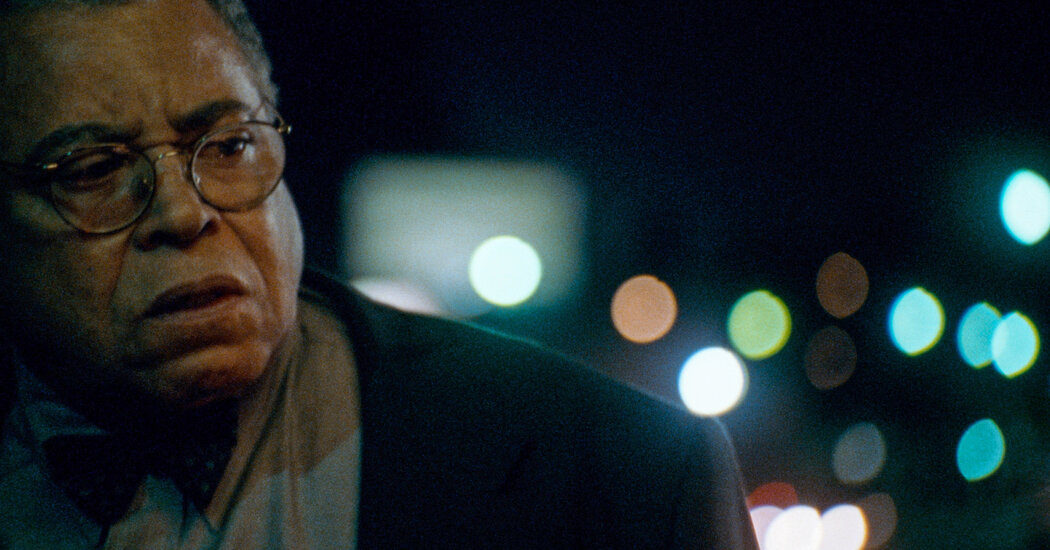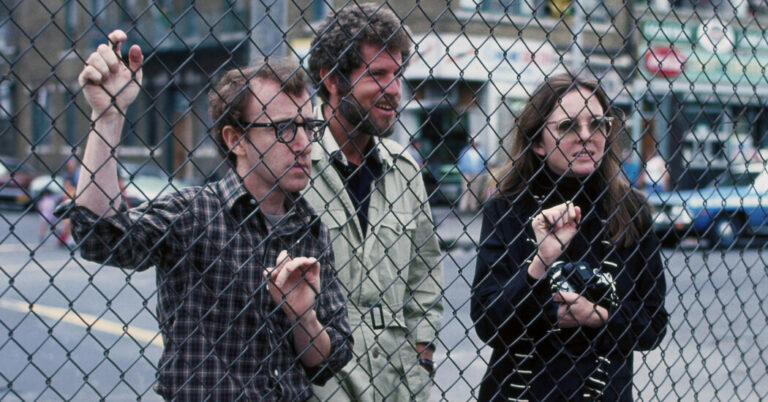Obediah Johnson — the lost-and-found soul played by a magnificent James Earl Jones in “The Annihilation of Fish” — has a barrel chest and a voice that sounds like it emerged, warmed and polished, from unfathomable depths. It’s an instrument that many know from “Star Wars” and “The Lion King,” in which Jones voiced two of the most totemic fathers in movies. Yet the eloquence of his basso profundo was also instrumental in lesser-known works like “Annihilation,” Charles Burnett’s deeply humane, singular view from the margins that is receiving a theatrical release 26 years after its first public screening at a film festival.
It seems shocking that it’s taken this long for the film to hit theaters given Burnett’s elevated standing; his masterful “Killer of Sheep” (1978) is a milestone in American cinema and his reputation long established. Among other things, genuine independent filmmaking, the kind that transcends formula and expectations and comes without corporate sponsorship, has always been difficult to market. And Burnett, whose filmography includes “To Sleep With Anger” (1990), a neo-Gothic tale about a Southern interloper that slips between drama and comedy, has always defied compartmentalization. He can’t be pigeonholed.
The movie is often gently funny, though occasionally lurches into boisterous excess, with jolts of slapstick and glints of ticklish nonsense. At the same time, there’s a strong current of melancholy running throughout the story, which complicates and occasionally destabilizes its comedy. There are moments here when you laugh but aren’t sure if you should, and instances when you wonder (and worry) if you’re laughing with the characters or at them, and whether it matters. Most movies prompt you about when it’s time to laugh and to cry; not this one.
Written by Anthony C. Winkler, the film tells the tale of Obediah — he goes by Fish — a Jamaican immigrant who’s long lived in a mental facility in New York and claims to be bedeviled by an invisible demon he calls Hank. The demon pops up unexpectedly, as imps tend to do, and Fish keeps him in check by wrestling him. They’re grappling in church soon after the movie opens, a tussle that ends with Fish being abruptly ousted from his group home.
Fish ends up in that vexed paradise known as Los Angeles, where he moves into a modest, dilapidated apartment building run by a friendly eccentric, Mrs. Muldroone (a winning Margot Kidder). With its lush garden and stained, peeling interior, the building is the sort of place you can imagine the likes of Nathanael West and David Lynch making poetically dark use of. By contrast, Fish settles in with the pragmaticism of someone who must make do with what little life has afforded him: He spruces up his new apartment, transforming squalor into a home.
The trickiest character in the movie, Poinsettia (Lynn Redgrave), is introduced sometime before she and Fish meet; you know she’s important to his story from how Burnett cuts between them, like an anxious matchmaker.
Poinsettia proves more difficult to warm to, in part because of her excesses. There’s a strong element of pantomime to Redgrave’s performance, to how she flails about, arms akimbo, and how she snaps her rubber-band mouth into exaggerated smiles and frowns.
A modest movie modestly told, “The Annihilation of Fish” sneaks up on you; it’s as stealthy as Fish’s demon and can pack just as powerful a wallop. It’s a story about two people who find each other, and while love stories are often irresistible, what distinguishes this one is the tenderness of Burnett’s touch and the generosity of his worldview. He isn’t a showboat (he’s more Fish than Poinsettia), so it can be easy to miss the grace notes that fill this film, which makes room for characters who in other contexts might be called offbeat, strange or weird. They are also, simply, just people, which is why the image of Fish comfortingly extending his hand to another person is such a strikingly authorial gesture.
Source link




